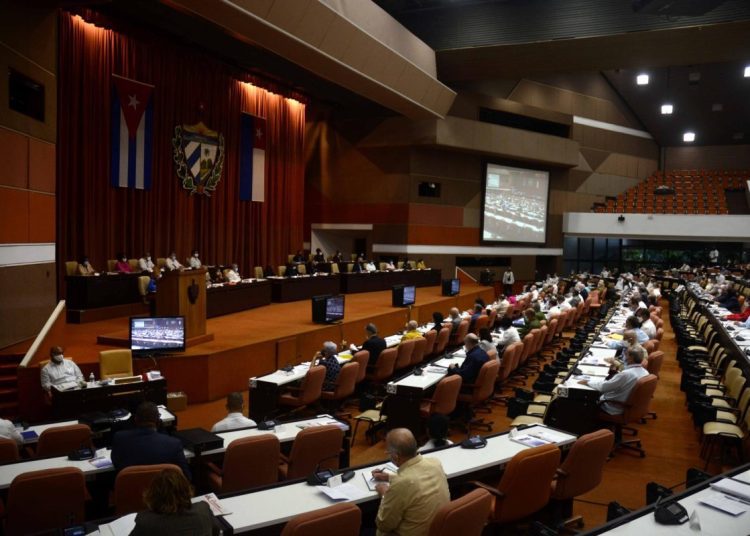The agenda of the Cuban Parliament, which convened on Tuesday the second ordinary session of the year for December 20, includes bills on enterprises, migration and foreigners.
The schedule of Cuba’s highest legislative body, which traditionally meets twice a year in July and December, also includes bills on transparency and access to information.
The stage of the current legislature runs until 2027 and includes other bills such as the one on foreign investment (end of 2026).
https://twitter.com/AsambleaCuba/status/1729367072591778197?ref_src=twsrc%5Etfw%7Ctwcamp%5Etweetembed%7Ctwterm%5E1729367072591778197%7Ctwgr%5E912806c996f57d572b1d3c474e4c8fda198c7928%7Ctwcon%5Es1_&ref_url=https%3A%2F%2Foncubanews.com%2Fcuba%2Fen-agenda-del-parlamento-cubano-proyectos-de-ley-sobre-empresas-migracion-y-extranjeria%2F
The Cuban National Assembly is elected for a five-year term and chooses among its deputies the president and vice-president of the Republic, its leadership, and the members of the Council of State.
The December session comes in the midst of the discussion of the draft bill of the Public Health Law approved at the extraordinary meeting last November. Although the normative proposal ratifies the constitutionally endorsed universal and free access to health services, it recognizes new rights and services. It also updates the principles of organization and operation of the National Health System.
The proposal incorporates more than 40 articles focused mainly on non-discrimination in health services, the recognition of human dignity as a supreme value, and the State’s responsibilities in providing care, protection, and recovery services, “a concept that is incorporated for the first time”.
Parliament approves first Law on Social Communication in Cuba
The Parliament’s schedule was approved in the second extraordinary session of the National Assembly, last May, when they also approved the Social Communication Law in its 34th version. The legal provision will regulate the processes in the organizational, media, and community spheres, for political, public good, organizational, and commercial purposes, both in public, physical, and digital spaces.
The Assembly created a temporary group to advance the new norm. The Council of State decided to include a transitory provision so that, within two years, the president of the Institute of Information and Social Communication, Alfonso Noya Martínez, will report to the Assembly on the process of implementation of the law.
Efe/OnCuba










